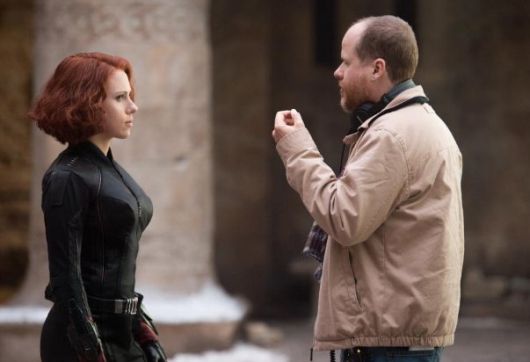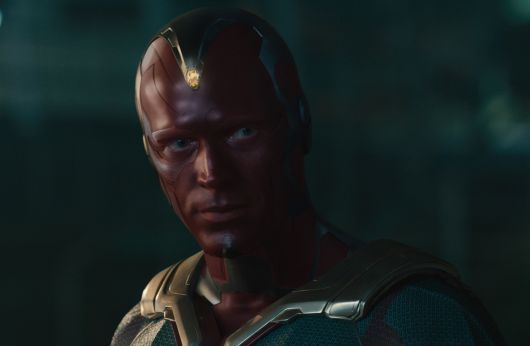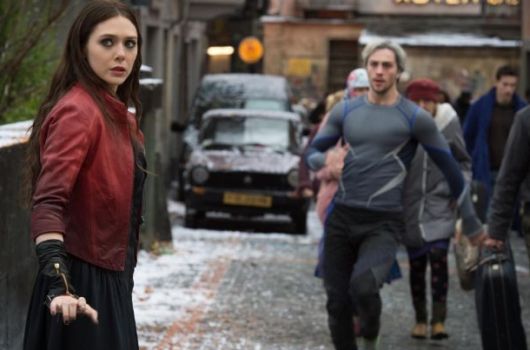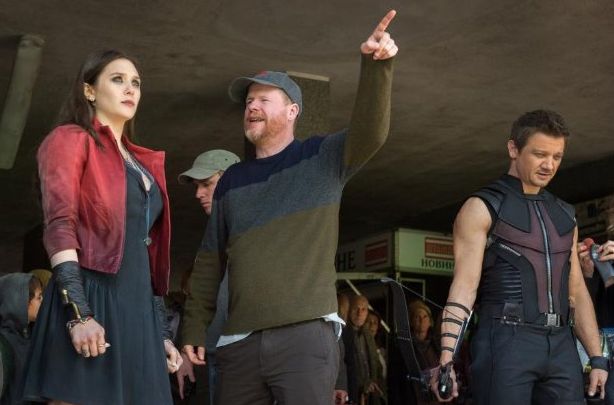
But I’m a Cheerleader
by ALICE BOLIN
Buffy the Vampire Slayer
dir. Fran Rubel Kuzui
86 minutes
As far as high school movies go, as far as the line between the comic and the uncanny, for what it’s worth, the original, early-nineties Buffy the Vampire Slayer takes a turn for the weird almost immediately. In the first scene, high school queen bee Buffy, played by Kristy Swanson, and her fellow cheerleaders perform a dance routine at a basketball game. The film’s first lines of dialogue come from the school’s basketball coach, giving his players a pep talk. “Repeat after me,” he says. “I am a person. I have a right to the ball.” His self-help-y rhetoric continues in the other game shown in the movie. “You’re in,” he tells a player. “Now remember: you’re special. Assert your personhood! Actualize!” “Score some uh… points!” he calls from the sidelines.
The basketball coach isn’t an important character; he has no bearing on the plot, and he doesn’t even interact with any of the film’s major characters. He is only part of the absurdity that the film’s horror elements afford it. There are many features of Buffy the Vampire Slayer, in addition to its goth-punk vampires, that feel almost imaginary, a step beyond the real. Take Buffy’s supremely self-absorbed parents. “Kiss noise!” her mother calls as she and Buffy’s father take off for the weekend. When Buffy comes home dirty and bruised from fighting vampires in the graveyard, her mother meets her at the door, looking stern. “Do you know what time it is?” she asks. “A little after ten?” Buffy says. Her mother looks at her watch. “I knew this thing was slow. You pay a fortune for something!”
There’s also Buffy’s school principal, played by Stephen Root, who, believing Buffy is on drugs after her attendance slips once she begins fighting vampires, tells her a long story about taking acid at a Doobie Brothers concert and thinking he had turned into a giant toaster. Even the school’s mascot — The Hogs — feels a little not-quite-right. This heightened reality is one of the things that make Buffy the Vampire Slayer so enjoyable and special; it is also a reason it is surprising that the film hasn’t received more cult acclaim. What, after all, do cult audiences desire more than camp?
The immense success of the Buffy TV series has not been good for the film’s reputation, and Buffy’s creator, Joss Whedon, who wrote the film, has distanced himself from it, saying that his vision for it was darker and less comedic. “It didn’t turn out to be the movie that I had written,” Whedon said. “They never do, but that was my first lesson in that.” He walked off the film because he couldn’t stand the presence of Donald Sutherland, who played Buffy’s guardian “watcher” Merrick, and who, according to Whedon, was “a prick” with “a very bad attitude.” So his devoted fans have exiled the Buffy movie from the Whedon canon. This is really too bad.

It is true that the film is strange and uneven, with a plot that might not make complete sense even after many viewings. Los Angeles experiences a rash of vampire attacks, so superficial valley girl Buffy is sought by the watcher, Merrick, as the latest in the long line of slayers fighting the vampire kingpin, Lothos (Rutger Hauer). Midway through the film, when Lothos kills Merrick as Merrick is trying to protect Buffy, Merrick tells her to listen for when the music stops; then, he echoes Hamlet, the rest is silence. This cryptic wisdom about the music and silence somehow helps Buffy to defeat Lothos in their final conflict at her high school’s senior dance, in ways that aren’t totally clear. But the film is also hilarious and delightful, and an artifact of a kind of feminism unique to its time, one we might think of as genuine “girl power,” less cynical than The Spice Girls’ packaged independent-women schtick.
In fact, this feminism is the guiding ethic of the film: any man who displays sexist attitudes is swiftly and often gruesomely punished. At times it is up to the universe to avenge misogyny. Buffy’s ultimate love interest and partner in vampire elimination is the grungy mechanic Pike, played by Luke Perry. When they first meet, though, Buffy and her friends clash with Pike and his friend Benny, played by David Arquette, at hangout spot Café Blasé. Afterwards Pike and Benny wander drunk at the top of some cliffs, and Benny complains about Buffy and her friends. “Those rich bitches are a plague,” Benny says. “Like they’re not even human.” “But would you bone ‘em?” Pike asks. Benny says emphatically that he would, especially Buffy. “You’re disgusting,” says the noble Pike. “You don’t even like her, and you’d sleep with her.” Immediately after, Pike passes out on the street and is rescued by Merrick, and a vampire flies up behind Benny and bites him on the neck.
More often, though, this justice is meted out by Buffy herself. At the café, Benny taunts Buffy with a hot dog held to his crotch, which she spears in two with a butter knife. Lothos’ clownish right-hand-man, played by Paul Reubens, says, “Admit it, Buffy. Aren’t there times when you feel less than fresh?” shortly before she drives a stake into his heart. Some bikers catcall her on the street, asking if she wants “some real power between her legs.” “Yeah I do,” Buffy replies, throwing one of them to the ground and riding off on his bike. “Dyke!” they call after her. “You’re a dyke!”

We have in Buffy’s avenging spirit a depiction of girlhood that is smart, sympathetic, and legitimately empowering. Buffy was one in a string of young female characters in the early nineties who were naïve and superficial but also goodhearted and confident — this rehabilitation of the valley girl included Parker Posey’s downtown club kid-turned-librarian in Party Girl and culminated with benevolent Beverly Hills socialite Cher Horowitz in Clueless. (We may remember that Cher was saving herself for Luke Perry.) In these movies, the main characters may become more responsible and less self-involved, but they don’t lose their admirable qualities — those qualities are actually what enable their transformation.
Even more refreshingly, these characters are not punished for not knowing everything, nor for being beautiful or interested in fashion, parties, or other traditionally frivolous things. This is a version of female empowerment that is not, thank you God, just a repudiation of the feminine — though Buffy becomes more hardcore, she ultimately defeats Lothos wearing a ruffly white dress.
Relatedly, importantly, Buffy is a testament to teenage-girl aggression. Buffy’s dual identities as cheerleader/prom queen/mall rat and anti-vampire warrior are not really that incongruous — Swanson looks like the beautiful but terrifying volleyball players who rule every high school. The film has a training montage, of course, with Buffy doing gymnastics and karate kicks and using a punching bag, but we are also to understand that Buffy’s slayer-ness was inborn; she has always been “the chosen one,” and her character is fierce and snotty from the outset. When she first meets Merrick, she is understandably suspicious of him. “All right, let’s get this straight,” she says. “You want me to go to the graveyard with you because I’m the chosen one and there are vampires? Does Elvis talk to you? Does he tell you to do things?” Later she complains that Merrick doesn’t do enough to help her fight the vampires. “I play my part,” Merrick says. “You can play with your part all you want, but it’s my neck on the block,” she replies.
In fact, it is Buffy’s snottiness, her defiance, that leads to her success. “None of the other girls ever gave me this much trouble,” Merrick says when Buffy insists on cheerleading at a basketball game. “And where are they now? Hello,” Buffy says. As Merrick is dying, he commends her for making trouble. “You do everything wrong,” he tells her. “Do it wrong. Don’t play our game.” Buffy says at one point that it is her “keen fashion sense” that sets her apart from the other slayers, and while this does eventually help her with Lothos — she holds a burning cross to his face and then sprays it with hairspray — it really is her sense of self that distinguishes her. Lothos attempts to use a supernatural charisma to overpower her, but Buffy refuses to be seduced by his narratives: “You and I are joined,” Lothos says, and “You are my destiny.” “You and I are one,” he tells Buffy. “One what?” she says. “Cute couple? I don’t think so!”

If in Buffy the Vampire Slayer we have an innovative depiction of feminine strength, we have an equally liberating take on masculinity. At the scene of Buffy’s first confrontation with Lothos, Pike shows up unexpectedly, ready to slay some vampires. “What are you doing here?” she asks him. “I’m saving your butt,” he says. She looks at him skeptically, and he backpedals. “Well, it was more like an exchange of butts.” The dynamics of protection in their relationship are based on exchange. Buffy is certainly no damsel in distress — in the last scene, she prepares to leave the dance to fight Lothos’ hoards. “I’m not going to let you go out there by yourself,” Pike says. “Don’t piss me off,” Buffy says, then she kisses him and goes by herself into the night. But it isn’t a pure role reversal either, with Buffy constantly saving Pike from peril. Their relationship is a real partnership, where neither is resentful of the other’s strength.
Here we have an illustration of what pages of feminist theory will tell you: that subverting the patriarchal order makes both men and women better. “You know what it’s like when everything’s suddenly different?” Buffy asks Pike after their first joint skirmish with the vampires. “You find yourself babbling incoherently to a strange man in your living room.” “Are you calling me a man?” Pike asks. Pike is more grown up, more manly, because he values Buffy for her power and lets her exercise it. It’s pretty beautiful.
Before the vampires descend on the dance, Pike says, “Buffy, you’re not like other girls.” Buffy shakes her head. “Yes I am,” she says. The equality present in Buffy the Vampire Slayer isn’t a result of its heroine’s remarkable strength — it’s a result of male and female characters who are allowed both strength and weakness, who can rely on one another, who don’t always have to be remarkable. There is an amazing moment at the very end of the film, after Buffy and Pike have defeated Lothos. In the midst of the destruction the vampires have wrought in the school gym, Pike tells Buffy he’s saved her a dance. “I suppose you’ll want to lead?” he asks her. “No,” she says. “Me neither,” he says.
Alice Bolin is the senior contributor to This Recording. She is a writer living in Missoula. She tumbls here and twitters here. She last wrote in these pages about the explanation. You can find an archive of her writing on This Recording here.

"Dear Believe" - Edward Sharpe and the Magnetic Zeros (mp3)
"All Wash Out" - Edward Sharpe and the Magnetic Zeros (mp3)
The second album from Edward Sharpe and the Magnetic Zeros, entitled Here, was released on May 29th.

 FILM
FILM  Tuesday, April 28, 2015 at 12:15PM
Tuesday, April 28, 2015 at 12:15PM 












































